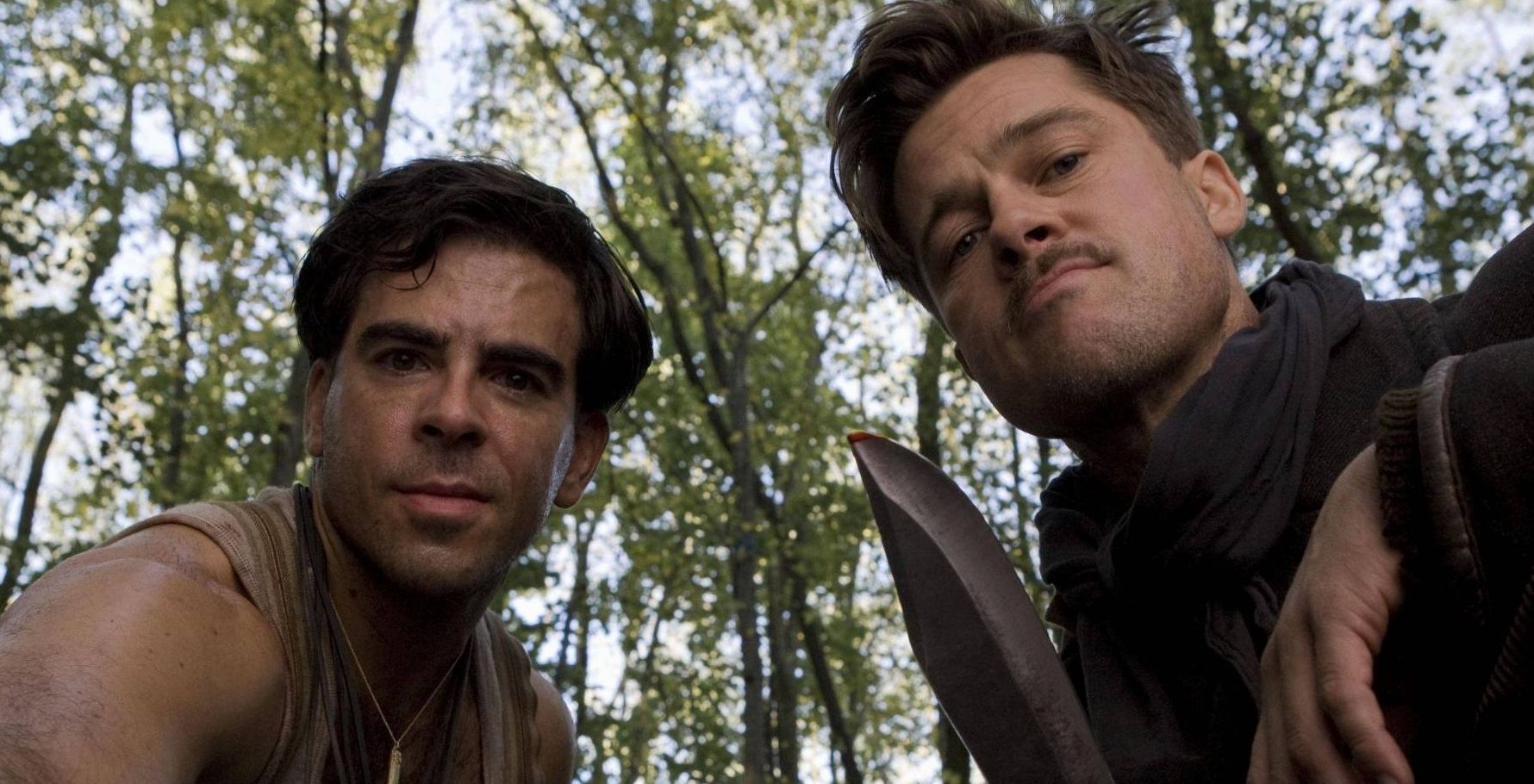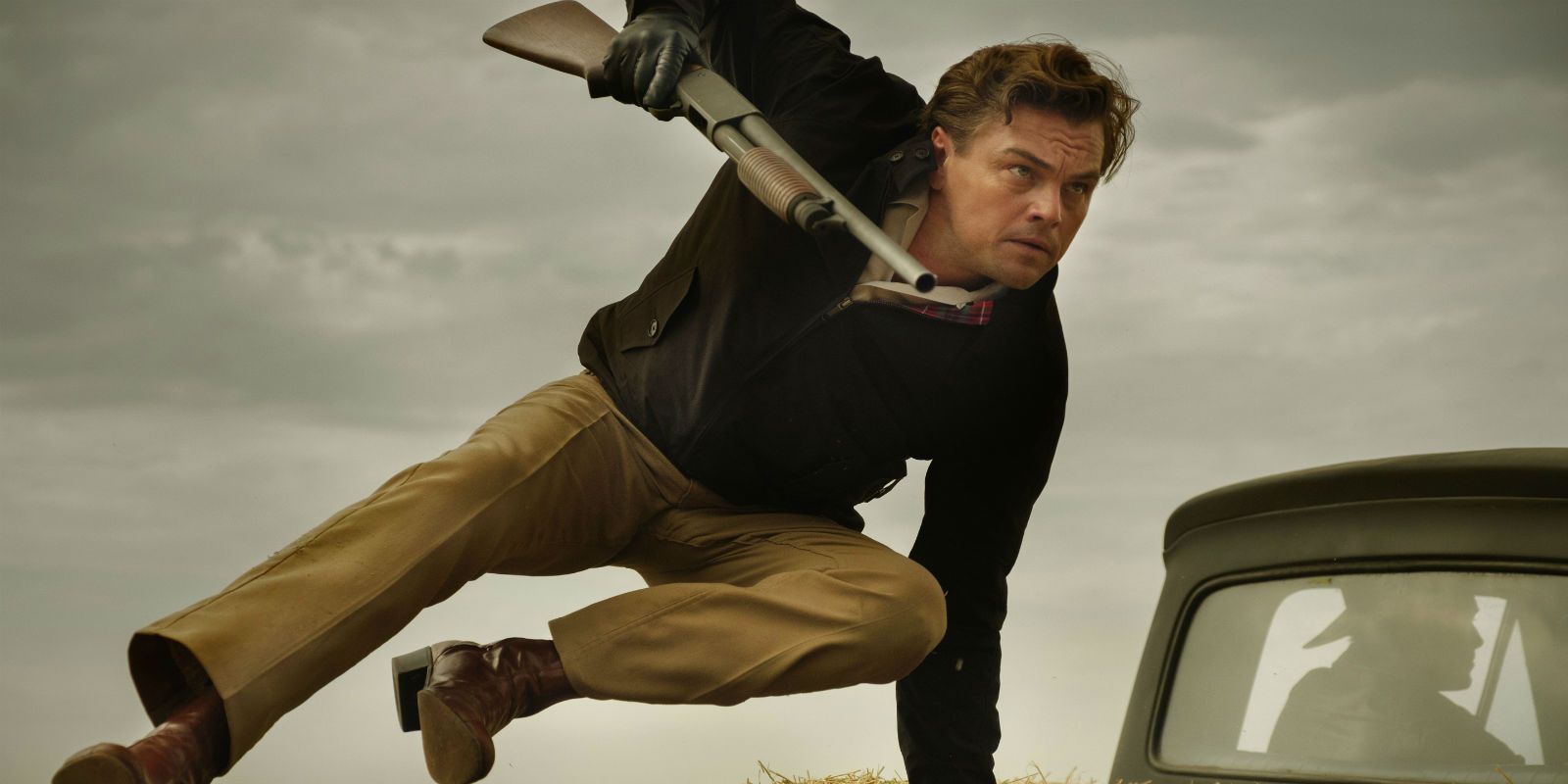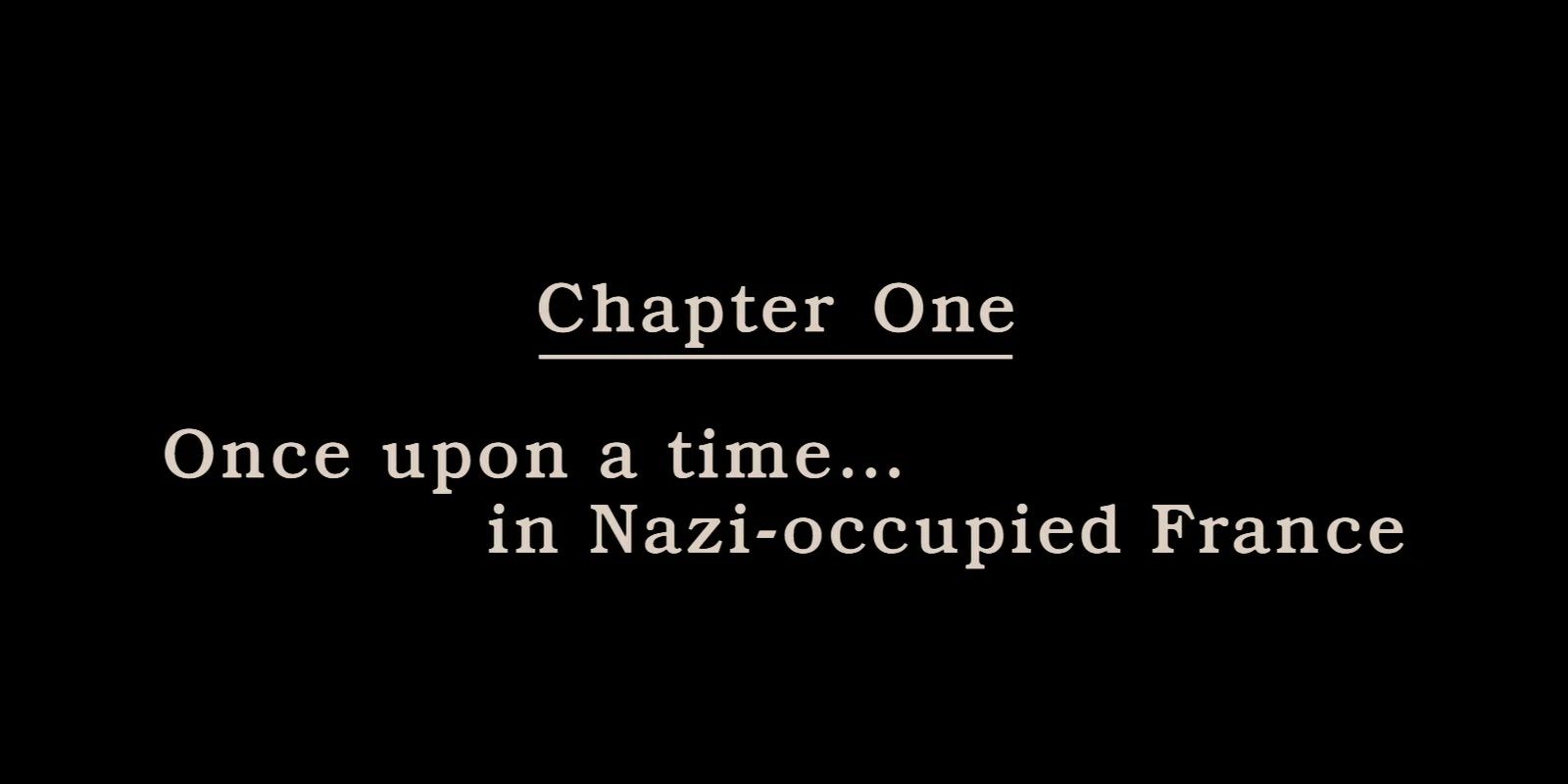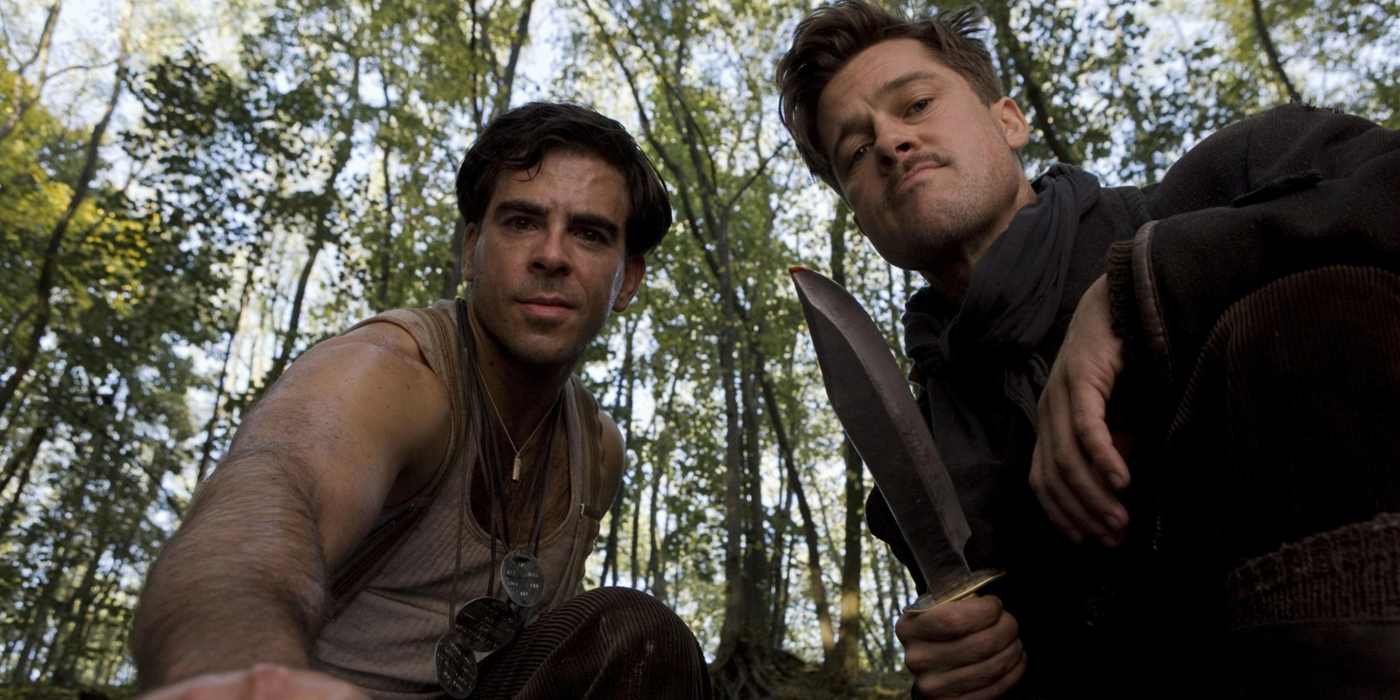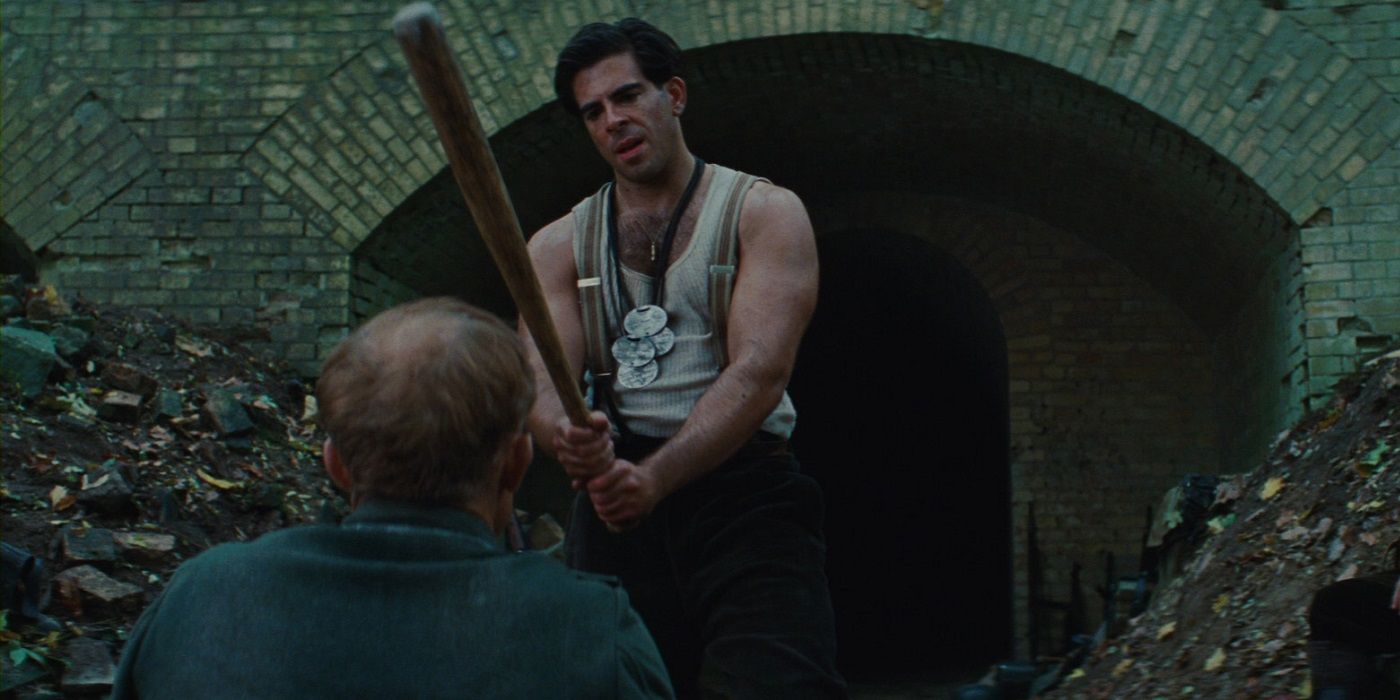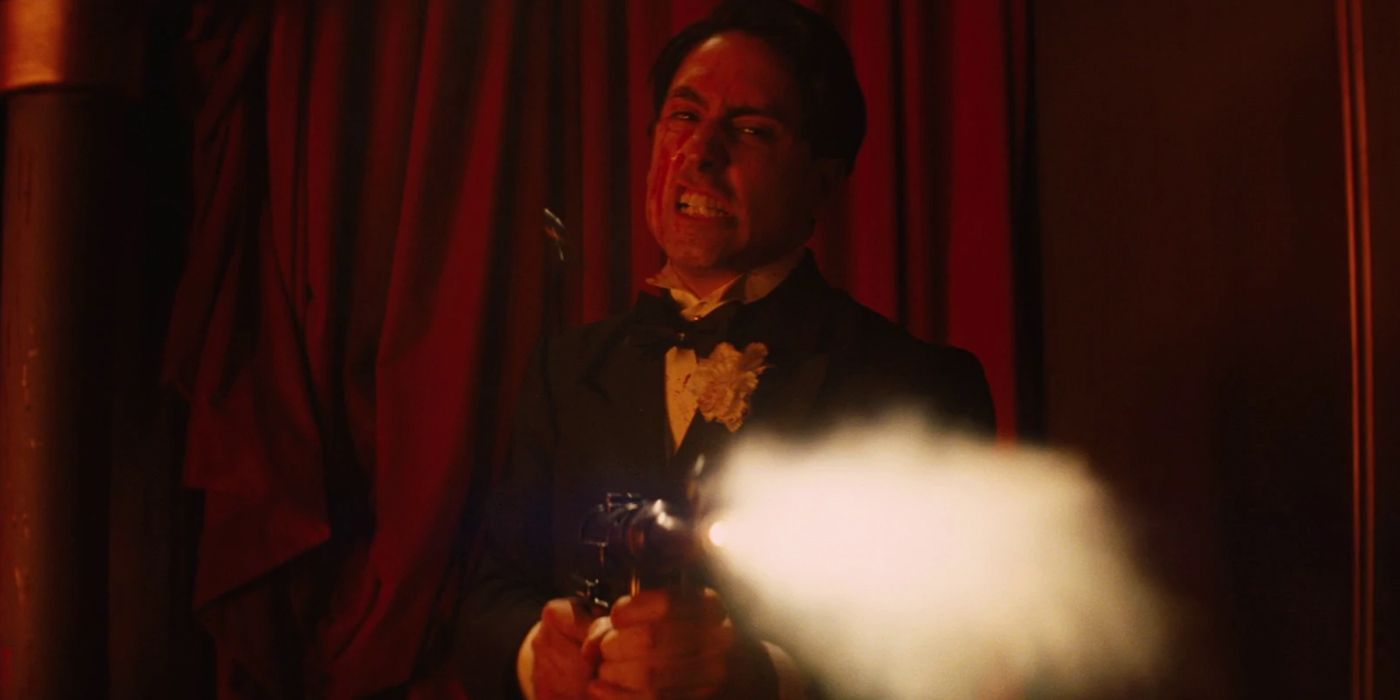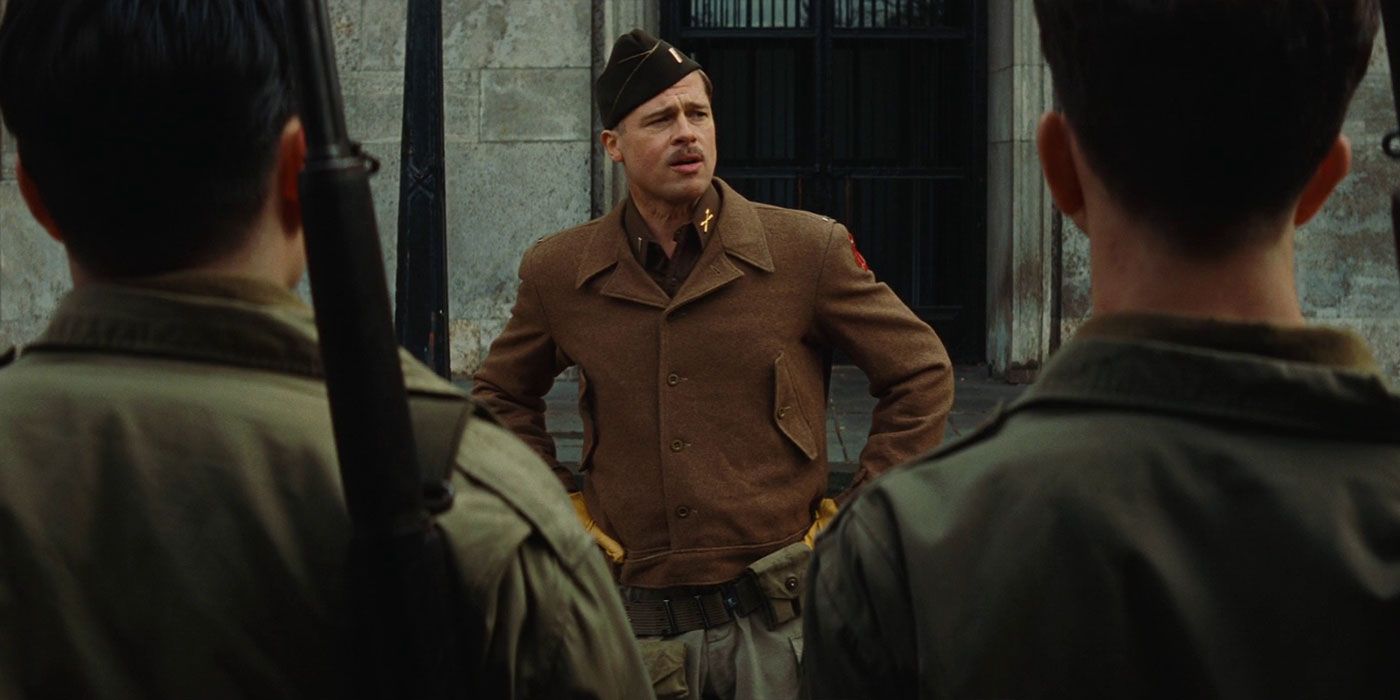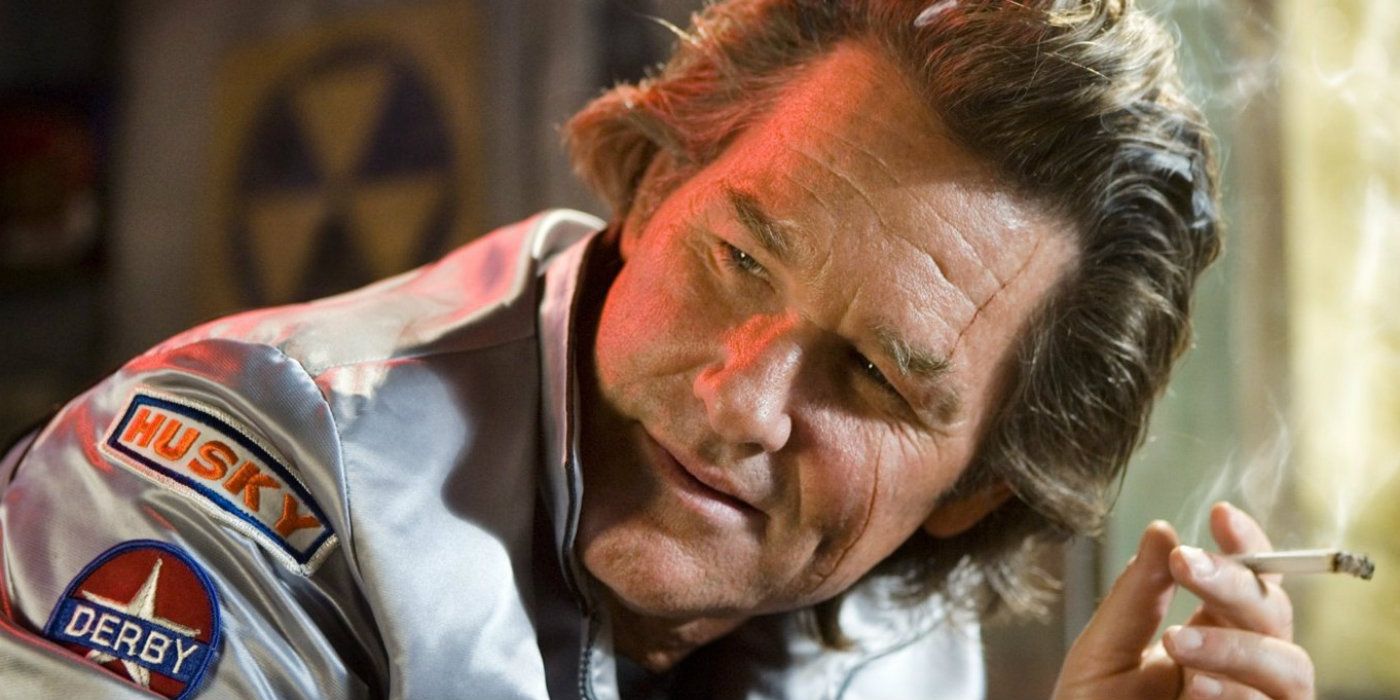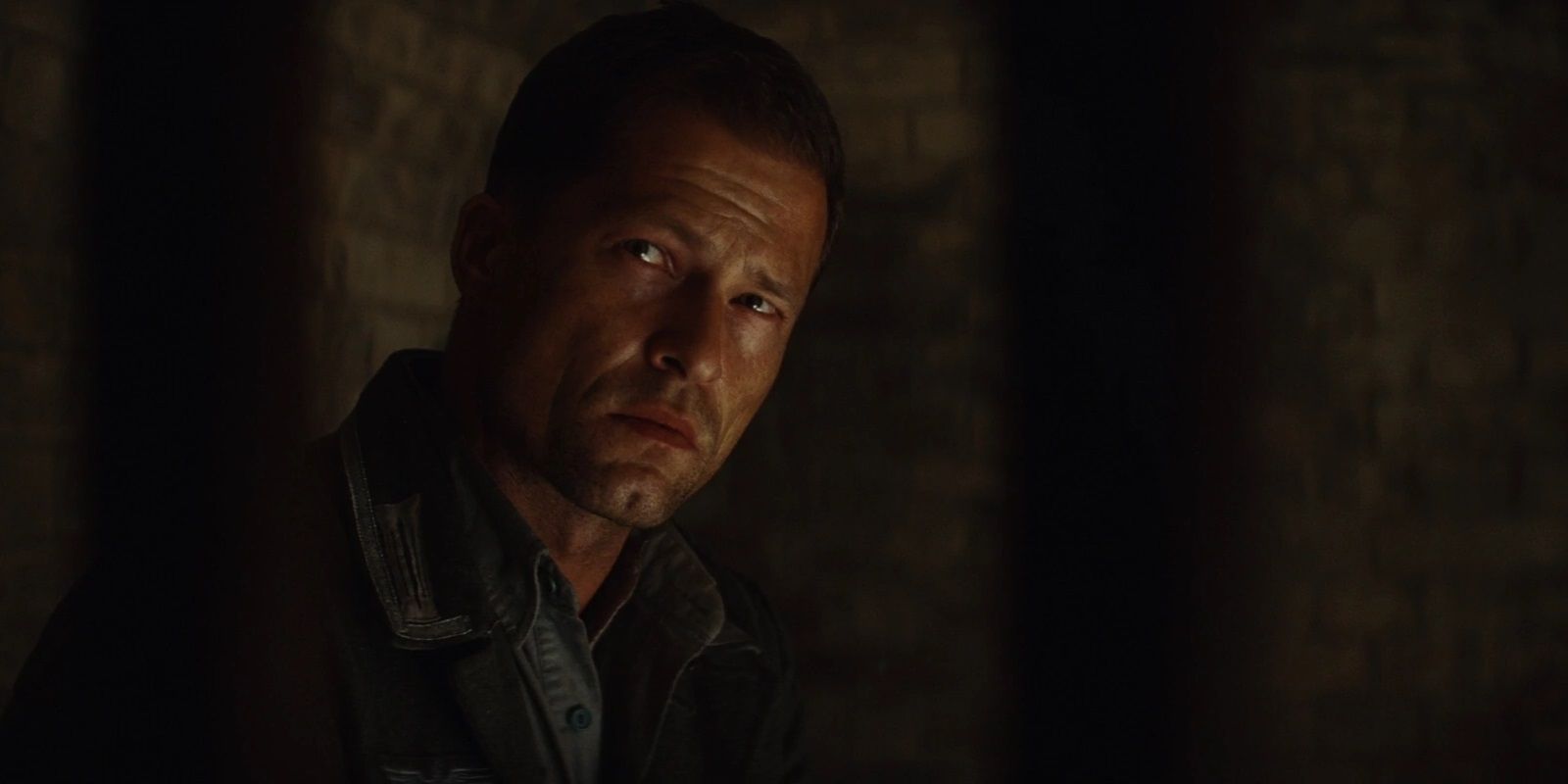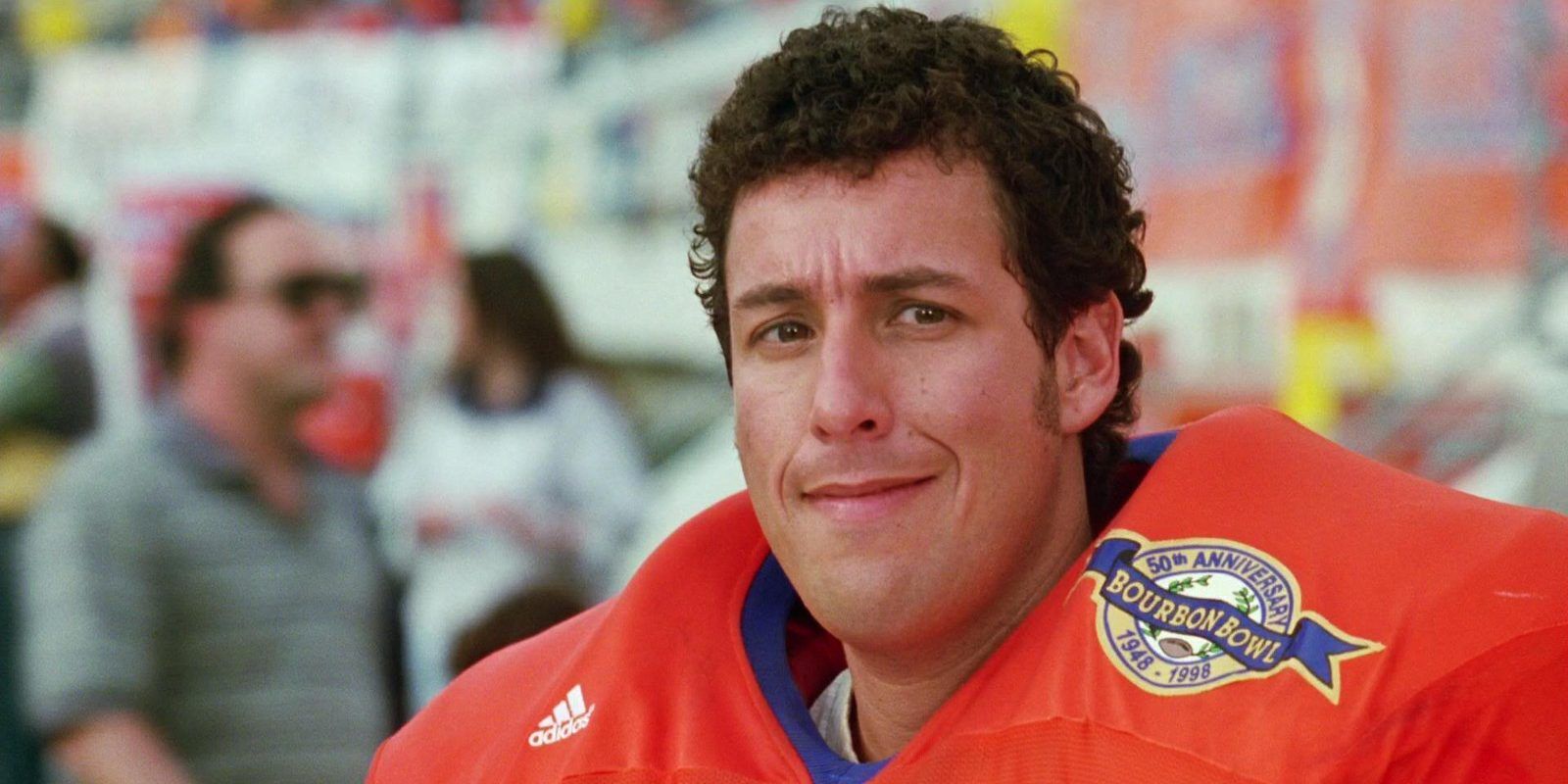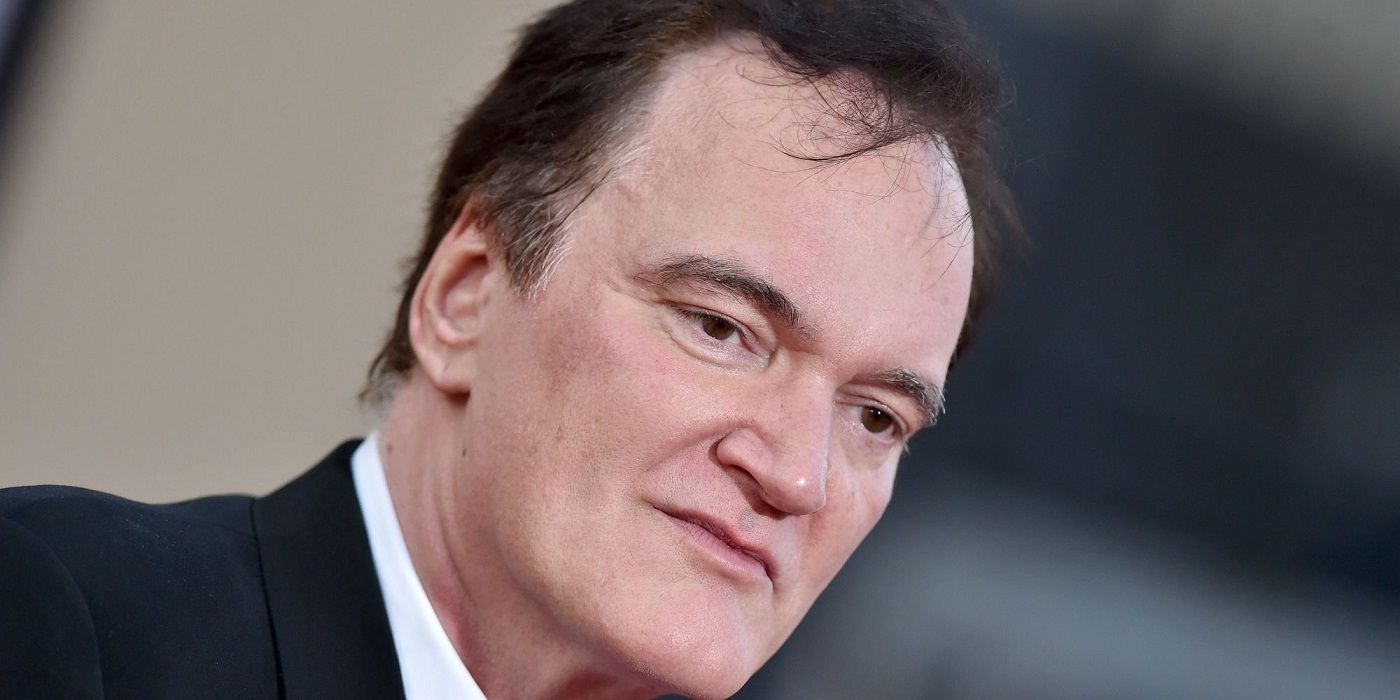Quentin Tarantino’s darkly comic World War II epic Inglourious Basterds made a big splash with both critics and fans when it hit theaters a decade ago. The script spent years in development, went through several different casting changes, and looked nothing like it did in the first draft when it finally made it to screens.
The director considered it to be his masterpiece, saying as much in the final moments of the movie itself, and so he was very excited to share it with the world back in 2009. So, here are 10 wild behind-the-scenes stories of Inglourious Basterds.
Leonardo DiCaprio Was Tarantino's First Choice to Play Hans Landa
Quentin Tarantino’s first casting choice for Col. Hans Landa, the sinister Nazi antagonist in Inglourious Basterds, was Leonardo DiCaprio. When he was first writing the role, Tarantino feared that it would be “unplayable.” He would later go on to say that Christoph Waltz “gave me my movie.”
As great of an actor as DiCaprio is, it’s hard to imagine anyone pulling off the role of Hans Landa as well as Waltz did in his ultimately Oscar-winning turn. DiCaprio would eventually end up collaborating with the director on Django Unchained (in a supporting role) and Once Upon a Time in Hollywood (in a lead role).
It Was Almost Titled Once Upon A Time... In Nazi-occupied France
Before deciding on the curiously-misspelled title Inglourious Basterds, Quentin Tarantino was planning to call his World War II epic Once Upon a Time in Nazi-Occupied France, which ended up just being the first chapter. This is because it was intended to be a spaghetti western set in the Second World War, so he came up with a spaghetti western-sounding title.
Sergio Leone, one of the primary influences on Tarantino’s career, made two movies with the Once Upon a Time... titling formula, so it’s no surprise that Tarantino has tried to work it into his own filmography on more than one occasion. He did finally use the formula this year for Once Upon a Time... in Hollywood.
The Film's Posters Had To Be Tweaked To Abide By German Law
There’s a law in Germany that prohibits the display of Nazi iconography. Naturally, the posters for Inglourious Basterds posed an issue for German lawmakers since they were plastered with swastikas. So, the producers had to replace the swastika on the helmet in the poster with a bullet hole and also remove the swastika from the film’s logo.
The movie’s American posters and wallpapers were prohibited from being downloaded online on German sites. The movie itself was allowed to remain untouched because the law doesn’t apply to “works of art.” (Advertising doesn’t count as a “work of art,” for obvious reasons.)
Eli Roth Directed Nation’s Pride
In the third act of Inglourious Basterds, we see huge chunks of a film-within-a-film, the German propaganda piece Nation’s Pride, which is screening in Shoshanna’s theater. Within the narrative, this movie is supposed to have been directed by Alois von Eichberg.
However, in real life, it was directed by Eli Roth. Roth appears in the movie as Donny Donowitz, a.k.a. “the Bear Jew.” Roth is a director friend of Tarantino’s, having helmed a wide range of movies from low-budget grindhouse favorites like Cabin Fever and the Hostel franchise to studio family adventures like The House with a Clock in Its Walls.
Tarantino Considered Turning The Script Into A TV Miniseries
When Quentin Tarantino set out to write a “bunch-of-guys-on-a-mission” movie that he described as “my Dirty Dozen or Where Eagles Dare or Guns of Navarone kind of thing,” he has admitted that he became “too precious about the page.” The story kept expanding, and he was reluctant to cut anything from it.
As a result, he considered going all-in with the expanding storyline and stretching it out into a TV miniseries, much like how he premiered a recut version of The Hateful Eight on Netflix recently. In the end, he cut it back by using his script for Pulp Fiction as a guide for the suitable length.
Ennio Morricone Almost Composed The Score
Since Tarantino’s goal with Inglourious Basterds was to make a spaghetti western set in World War II, who better to compose the score than the great Ennio Morricone? He reached out to Morricone, who was eager to work on the film, but, ultimately, the scheduling clashed with another movie Morricone was doing called Baaria, and he didn’t think he had enough time to write the score to a standard he was pleased with.
Tarantino would eventually get to work with Morricone when the legendary composer came on board his sprawling revisionist western The Hateful Eight to provide the tense, claustrophobic score.
There Are A Couple Of Cameos By Tarantino Regulars
Inglourious Basterds doesn’t feature any of Quentin Tarantino’s regular collaborators in leading roles. Actors like Brad Pitt and Christoph Waltz would go on to reteam with the director and effectively join the Tarantino company of performers, but, at the time, they were new to his world.
However, a couple of actors who have been with him since the beginning made cameos. Harvey Keitel provides the voice of the O.S.S. Commander towards the end, Samuel L. Jackson provides the voiceover narration that explains how flammable film stock is, and Quentin Tarantino, who often appears in his own films, has dual roles as an American soldier in Nation’s Pride and a Nazi who has his scalp removed.
Til Schweiger Only Agreed To Wear A Nazi Uniform Because He Was Killing Nazis
Having been born and raised in Germany, Til Schweiger had always refused to wear a Nazi uniform for a film role. Even though it was just make-believe, he hated the idea of wearing one. However, he made an exception for Inglourious Basterds because, although his character wore a Nazi uniform, he wasn’t fighting for the Nazis.
He played Hugo Stiglitz, the Nazi turncoat who uses his German heritage to infiltrate the Nazis and betray them, becoming infamous among them for killing so many of them. He then joins the Basterds on their Apache mission. Schweiger was happy to play that guy.
Adam Sandler Was Tarantino's First Choice To Play The Bear Jew
If the casting of Eli Roth as the Bear Jew seems out-of-the-left-field, then the initial choice is truly outlandish. Originally, Quentin Tarantino offered the role of Donny “the Bear Jew” Donowitz to Adam Sandler. Sandler wanted to accept the part, but filming conflicted with the movie Funny People, which Sandler was making with his old roommate Judd Apatow.
It must’ve been a tough call—an old friend or a visionary every actor in Hollywood is dying to work with—but ultimately, Sandler went with his heart. It’s hard not to imagine how wild this would’ve been. Imagine the goofy, family-friendly comic behind Happy Gilmore and Billy Madison caving in a Nazi’s skull with a baseball bat.
Quentin Tarantino Refuses To Explain The Title's Spelling Errors
The title Inglourious Basterds was taken from a classic Italian macaroni war movie, but where the original was spelled correctly, Tarantino tweaked the spelling, adding a “U” into “Inglorious” and swapping an “A” for an “E” in “Basterds.” Don’t expect Tarantino to explain why he spelled it this way any time soon. When David Letterman asked him about the spelling, he simply said that it was a “Quentin Tarantino spelling.”
At the film’s Cannes press conference, he said, “I’m never going to explain that.” He’s taking it to his grave, like Stanley Kubrick and the true meaning of The Shining.

